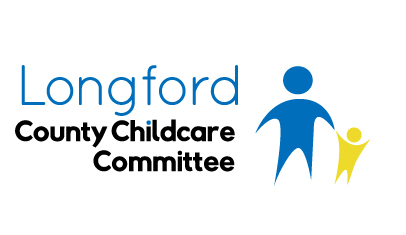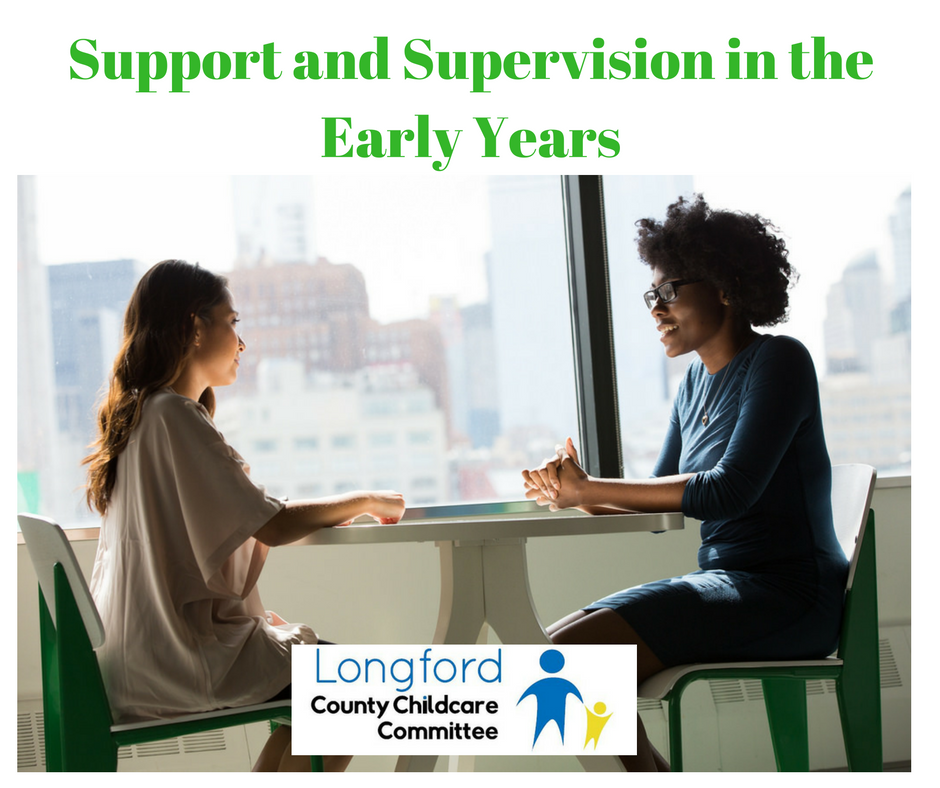Support and Supervision in the Early Years
The Early Years Services Regulations (2016) requires managers to provide their staff teams with regular support and supervision and requires an active policy on support and supervision within the service. Siolta: The National Quality Framework for Early Education places a significant emphasis on support and supervision sessions with staff. Standard 10: Organisations, advocates that within the confines of a support and supervision session, training and development should be assessed, the year’s performance should be appraised and a professional development plan should be formulated (French, 2003). Standard 9: Health & Welfare, sees support and supervision of staff as fundamental in enabling and facilitating staff to contribute positively to the promotion of children’s health and well-being and therefore have the ability to implement, Aistear: The Early Years Curriculum Framework.
So with all of this emphasis on support and supervision, which in many services will be a relatively new concept, let us take some time to reflect on what support and supervision is and how it can benefit our staff, our service and our children.
What is the purpose of Support and Supervision?
Good supervision can give staff an opportunity to reflect on their practice, explore any worries or concerns about the welfare of children in the setting and contribute towards developing confident and competent staff groups. All of these are known to be important in establishing safe organisations where children are safeguarded from harm.
Effective supervision provides support, coaching and training for the practitioner and promotes the interests of children. Supervision should foster a culture of mutual support, teamwork and continuous improvement, which encourages the confidential discussion of sensitive issues. Supervision should provide opportunities for staff to:
Who should carry out Support and Supervision sessions?
Support and supervision sessions should carried out by the service manager. They should be regular one to one meetings carried out approximately every six weeks. A time and date should be agreed in advance that is suitable for both parties. This is a specially dedicated time for the manager to support and listen to the practitioner to enable them to direct their own professional development. One to one supervisions are a valuable method of promoting reflective practice.
Support and supervision meetings should be documented and referred to regularly to reflect on the practitioners’ development. It is advisable for services to design their own support and supervision template to ensure consistency in support given to all staff members. If you need assistance in designing this template please contact the support and development team in Longford County Childcare Committee for assistance.
Where will Support and Supervision fit into an already busy day?
Many providers are sceptical about introducing support and supervision sessions into an already busy working environment. But this is exactly why they are so important. Staff are more effective in meeting the needs of children and families when they themselves are supported. It is essential that time is created to meet the needs of staff while also meeting the requirements of the Child Care Act 1991 (Early Years Services) Regulations 2016. Support and supervision sessions should be facilitated in a quite space that enables reflection and discussion and should be undertaken during normal working hours. It is the managers’ responsibility to ensure adequate staff child ratios are maintained within the service while support and supervision sessions are undertaken.
Support and Supervision Policy
Before a service can begin meaningful support and supervision sessions they must first think about how they will conduct them and a meaningful policy should be written. The Child Care Act 1991 (Early Years Services) Regulations 2016 states that a
“Supervision policy”, in relation to a pre-school service, means a policy specifying the manner in which employees, unpaid workers and contractors are supervised and supported in the service in relation to their work practices.
When writing your supervision policy you should include:
- a clear statement of purpose;
- clarify confidentiality and access to notes;
- reference the supervision contract and record;
- state clear expectations and boundaries;
- Stipulate the frequency, duration and recording of meetings; and demonstrates how quality supervision links to staff retention and motivation, performance managements and safeguarding of all employees and children.
Should you need assistance in drafting up this policy you should contact the support and development team in Longford County Childcare Committee where we facilitate one to one policy and procedure clinics by appointment.
Leicestershire County Council in the UK have developed a useful Early Learning and Childcare Service Supervision Toolkit that may help direct your policy development.
References:
French, G. (2003). Supporting Quality: Guidelines for Best Practice in Early Childhood Services (2nd Ed.). Dublin: Barnardos’ National Children’s Resource Centre.


